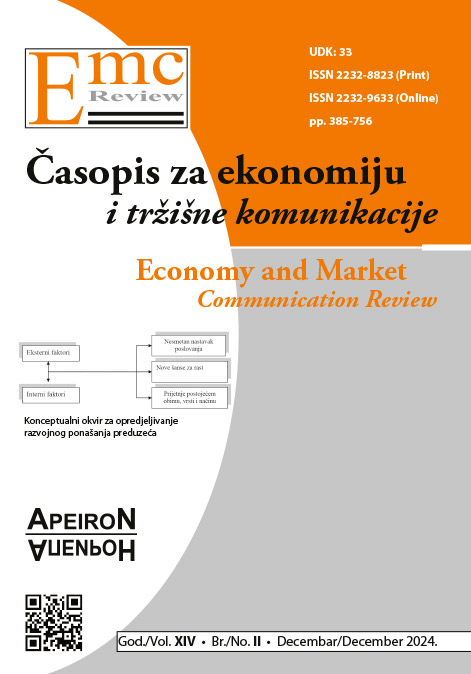APPLICATION OF MODERN METHODOLOGIES IN IMPROVING BUSINESS EXCELLENCE AND PROCESSES OF BUSINESS ENTITIES
DOI:
https://doi.org/10.7251/EMC2402594MKeywords:
business excellence, quality improvement, error elimination, process, business blindnessAbstract
Domestic companies must take care of product quality, because in addition to not being able to operate on the foreign market, they will soon not be able to operate on the domestic market either if they do not adhere to quality standards and at the same time improve their own registered business activities. The ultimate goal of quality improvement is to achieve business excellence, and excellence satisfies the end user. In order for companies to operate successfully, it is necessary to continuously improve and transform their business processes, from which companies can create certain smaller accumulations that are significant for new developments in increasing the level of quality of products or services. Companies also have the opportunity to make different and new business decisions during their operations, which can result in positive changes that will create significant breakthroughs in the company in question, and which will reduce future costs and improve their competitiveness on the market. Realizing that the state of errors or scraps of products, or services, arise as a result of “business blindness”, which is caused by the application of wrong or badly evaluated business processes at the micro or macro level, every company sooner or later comes to the realization that there is a need to make additional changes until achieving the highest possible correctness of the quality of products or services. By applying new methodologies for the purpose of improving the processes of business entities, the hypothesis of this paper is defined, which reads: “Companies that apply international standards do not achieve business excellence, because they do not apply models for assessing the maturity of business and for improving the level of maturity of business processes.”
